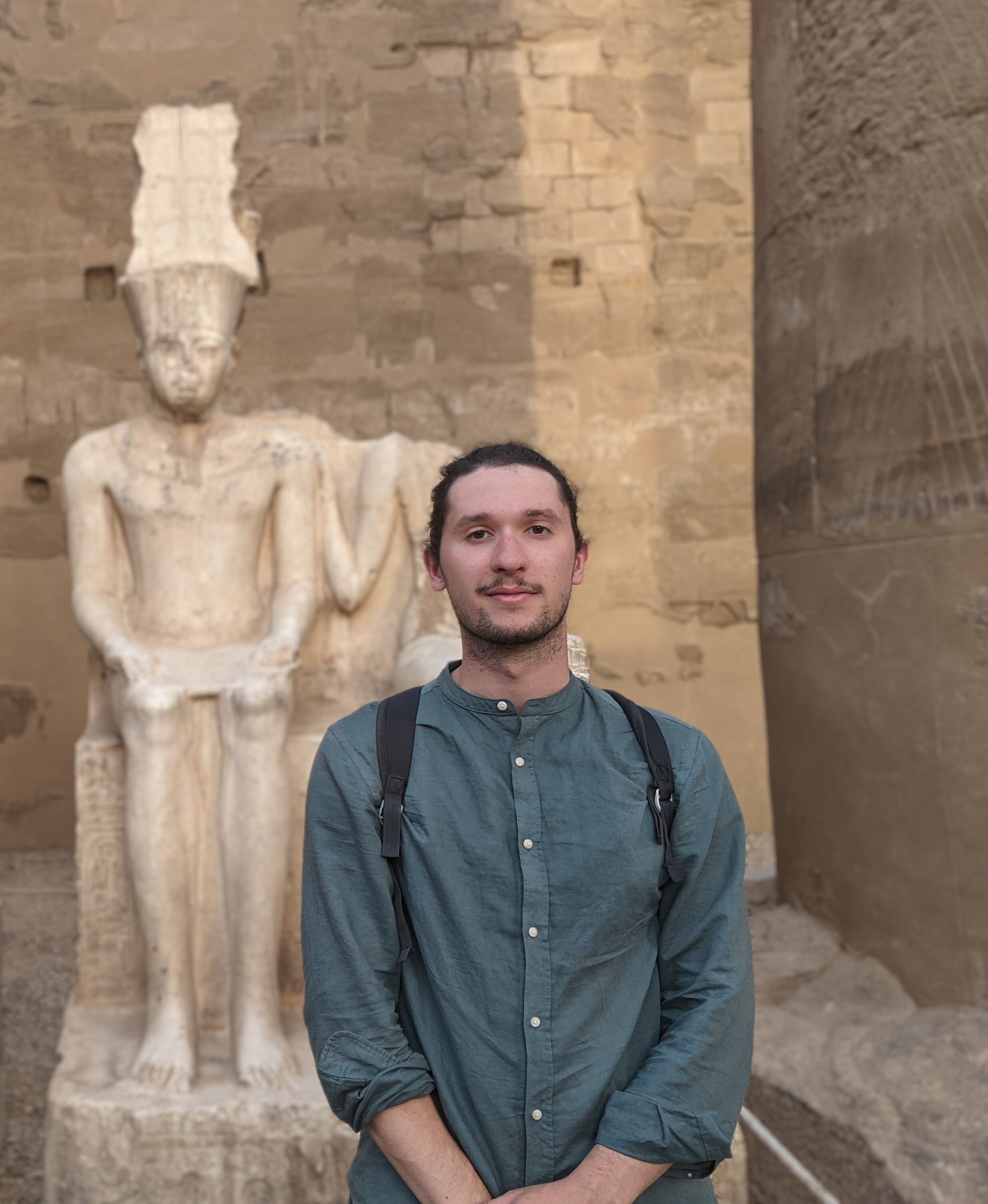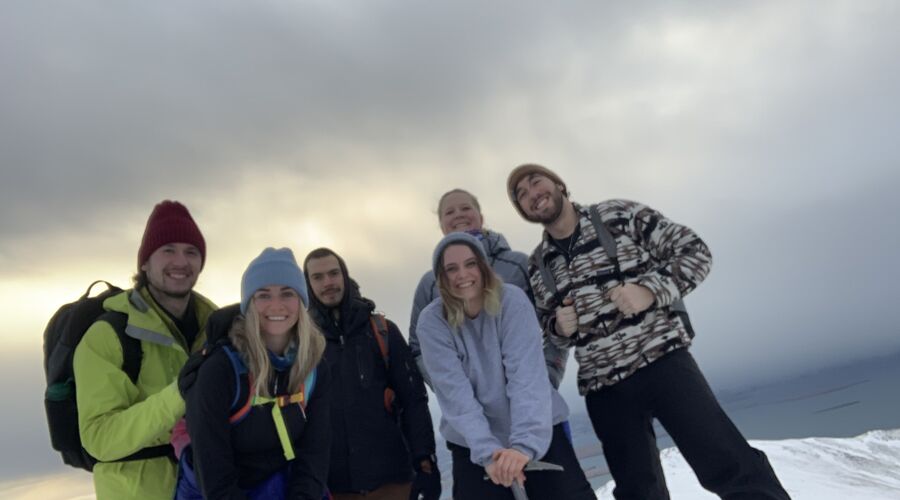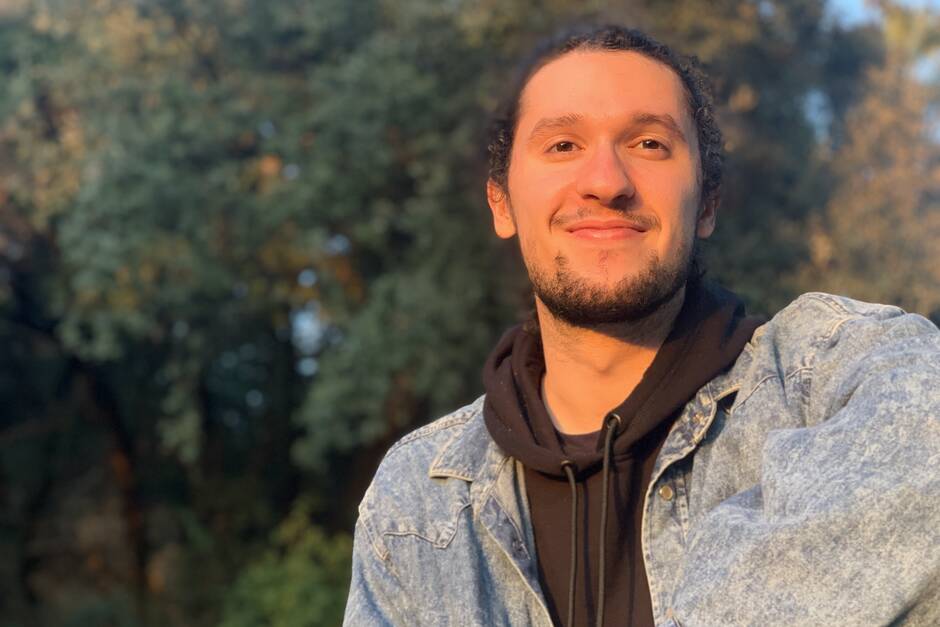Xavier Léveillée-Dallaire, Canada
Name: Xavier Léveillée-Dallaire
Age: 24
Hometown: Gatineau, Quebec, Canada
Academic Background: BSc Geological Engineering at Université Laval
Major & Class: Sustainable Energy Engineering, Class of 2023
Could you share with us a little bit about where you are from and your academic journey before attending Iceland School of Energy?
I'm from Gatineau, a city near Ottawa but on the Quebec side instead of Ontario. I studied geology and geological engineering at Université Laval, Quebec City. Most of the classes the university offers focus on either mineral exploration, hydrogeology or rock mechanics and, since I had an interest in geodynamism, I ended up taking classes related to mineral exploration. During one of those classes, I had to complete a project on the Lardarello geothermal complex and I ended up developing an interest for geothermal energy in general. Since I wanted to learn more on this matter after my third year I contacted a professor from INRS, a university located in the same city, to enroll in a summer internship related to shallow geothermal systems. This internship was a great way to learn more on ground-source heat pumps, and the professor I contacted ended up being my master's degree supervisor. After that, I realized that I would have to study abroad if I wanted to learn more about high-temperature geothermal systems since Eastern Canada isn't known for its geothermal potential. And so I left Canada for Iceland, where I could see and learn about such systems.
How did you end up in Iceland and what drew you toward Iceland School of Energy?
When I started looking at universities and thesis projects, my supervisor informed me of this dual-degree agreement between INRS and Reykjavik University, in which students go to Iceland for the first year in order to complete their courses and then come back to Quebec to concentrate on their research project. I thought on the spot that this was a golden opportunity and that I absolutely couldn't miss it. Iceland was also a prime choice for someone like me who loves hiking, needs snow during winter, loves to learn new languages, and just loves traveling in general.

What are you most looking forward to going into your second year of studies?
Since I've completed about half of my project already, I am looking forward to presenting those results in a Geothermal Rising Conference 2022 in August. I'm also excited to start focusing on the second part of my project and to prepare for my two-month internship in Akita, Japan. I have already spent a few months in Japan and I am more than happy to go back in another prefecture to improve my Japanese, eat local foods, and discover the culture. I'm also excited to go back to Canada and to eat poutine, which I haven't enjoyed in 11 months.
What are you focusing on for your thesis and how far along are you?
I already wrote about half of my project, so I have to focus now on the second half. Right now I am preparing my second summer fieldwork, where I'll have to find a site in Montreal to take soil samples and possibly perform a thermal response test. After the fieldwork, I will have to start developing models in order to do numerical simulations. I also have to prepare for a conference in the summer and for my internship next year.
Do you have an idea of what you'd like to do after you graduate from Iceland School of Energy and INRS?
I would like to continue working on ground-source heat pumps or on projects related to sustainable energy in general. Hence, I was thinking of working for Hydro-Quebec, which is the company that manages all electricity projects in Quebec, Canada (mainly hydroelectricity for now but that will change) or to work for any other company that manages sustainable energy projects. Traveling for a while also sounds like a great idea.
What has been the greatest takeaway you've acquired from studying at Iceland School of Energy?
Master's degrees in Canada focus more on research and really only allow students to take 3 courses. So I was lucky to take many classes (63 credits) in Iceland and I feel like I learned a lot on various subjects. I also think the greatest advantage of studying here is the numerous contacts you make, be it students, professors or people you meet in conferences and activities.

What do you enjoy most about living in Iceland?
Iceland to me has been fantastic because of the proximity of things, like the fact that it doesn't take long to go downtown with or without scooters. I mainly like cities that are sized like Reykjavik. There are also lots of restaurants, interesting bars and shops to discover, which is surprising to find in such a small city. Coming from a country where trees are all you see during hikes, it was amazing to hike here and see such a different environment where the landscape seems endless. Overall, this country is gorgeous during every season. I even had the opportunity to watch my first erupting volcano!
To all the potential students and professionals of the world considering graduate studies, why should they choose Iceland?
I think the country in itself is such a nice experience: it allows international students from everywhere to meet, learn and exchange; it allows students to discover Icelandic culture; and for the first time, you are not only learning about geothermal systems but also watching them. The university enables you to learn a lot and provides plenty of opportunities to either participate in international courses or field classes. For example, I just got back from a week in Estonia attending a course focused on Circular Economy with expenses like accommodation and food covered by the university.

